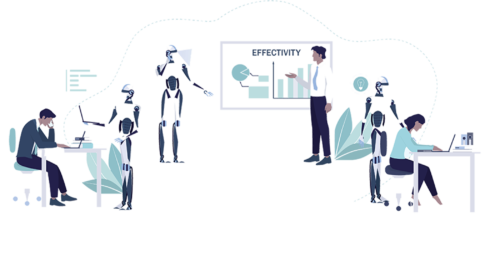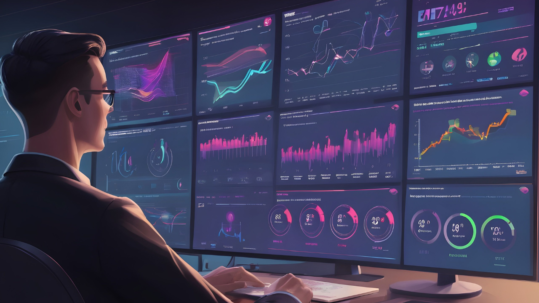
Top 9 Ways to Leverage AI for Recruitment and Sourcing for Efficiency and Quality of Hiring
In today’s competitive job market, finding the right candidates for open positions is a daunting task for recruiters and hiring managers. However, Artificial Intelligence (AI) has emerged as a futuristic tool for recruitment and sourcing. AI (Artificial Intelligence) for recruitment and sourcing has become an increasingly popular and effective tool in modern talent acquisition.
AI-powered tools and technologies have enabled organizations to streamline and optimize their hiring processes, making them more efficient, data-driven, and insightful. In this blog, we will explore how AI can be leveraged for recruitment and sourcing, delving into the various applications and benefits that AI brings to the table.
Some Interesting facts about AI in recruitment:
- 94% of recruiters report AI has enhanced their hiring process.
- 36% of recruiters and hiring managers say that AI improves their jobs.
- 66% of recruiting professionals believe that AI can boost HR values.
- 44% of survey respondents say AI will help recruiters save time.
9 Ways of Leveraging AI for Better Recruitment and Hiring
AI in Resume Screening
Traditional resume screening can be time-consuming, often leading to overlooking potential candidates. AI-powered resume screening tools use Natural Language Processing (NLP) algorithms to analyze and rank resumes based on predefined criteria. This automation not only saves time but also ensures a fair and unbiased assessment of candidates.
Candidate Sourcing Made Easy
AI-driven candidate-sourcing tools crawl through vast databases, social media platforms, and job boards to find candidates with the right skills and qualifications. These tools can search for specific keywords, job titles, and other relevant data, presenting recruiters with a curated list of potential candidates. This approach expands the talent pool and increases the chances of finding top-quality candidates.

Chatbots for Initial Interaction
The initial stages of recruitment often involve numerous queries from candidates about job details, application processes, and company culture. AI-powered chatbots can handle these interactions efficiently, responding instantly to common questions and assisting candidates with the application process. This not only reduces the burden on recruiters but also creates a positive candidate experience from the outset.
Enhancing Candidate Matching
AI algorithms can compare candidate profiles against job requirements and company culture, providing a more accurate and data-driven shortlisting process. By analyzing vast amounts of data, AI can identify the most suitable candidates, thus increasing the chances of finding the perfect match for the job.
Analyzing Video Interviews
Video interviews are becoming increasingly popular in hiring, especially for remote positions. AI can analyze these interviews, assessing the candidate’s responses, body language, and facial expressions. This data-driven analysis helps make more informed decisions and identify candidates with the right skills and cultural fit for the organization.
Promoting Diversity and Inclusion
Unconscious biases can inadvertently influence the hiring process, leading to a lack of diversity in the workforce. AI tools can help organizations identify and rectify biased language in job descriptions and candidate evaluation, promoting a more inclusive hiring environment.
Embracing Predictive Analytics
Predictive analytics powered by AI can predict a candidate’s likelihood of success in a particular role based on historical data. By assessing factors such as past job performance, skillset, and personality traits, recruiters can make data-driven decisions, increasing the probability of successful hires.
Personalized Onboarding and Retention Strategies
AI can assist in developing personalized onboarding programs based on the candidate’s background, skills, and career goals. Additionally, it can analyze employee data to identify factors that contribute to higher retention rates, enabling organizations to refine their strategies and boost employee satisfaction.
Data-Driven Recruitment Strategies
AI can analyze past recruitment data to identify patterns and trends, offering valuable insights for refining recruitment strategies. Data-driven decision-making can help organizations allocate resources more effectively and target their efforts on the most successful channels.
Wrapping Up
AI has undoubtedly transformed the recruitment and sourcing landscape, empowering organizations with data-driven, efficient, and unbiased hiring processes. From automating resume screening to predicting candidate success and promoting diversity, AI offers a myriad of opportunities to optimize and enhance the quality of hiring.
However, it is essential to remember that AI is a tool, and human expertise and judgment are still crucial for making the final decisions. By striking the right balance between AI-driven automation and human involvement, organizations can create a powerful and effective recruitment strategy that attracts top talent and drives business success.
To receive and stay updated about related content:





